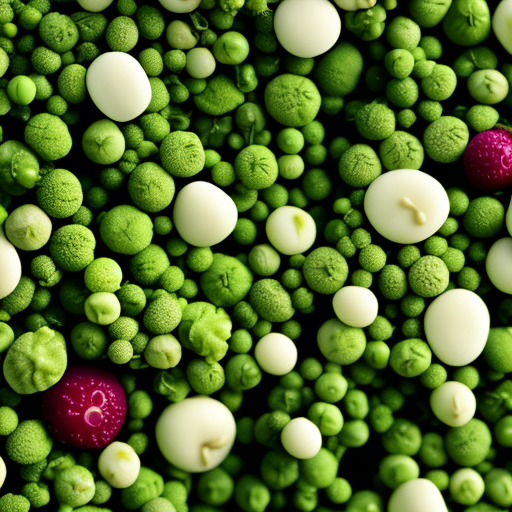Summary: Probiotics and prebiotics are two types of dietary supplements that can have a positive impact on gut health. Probiotics are live microorganisms that provide health benefits when consumed, while prebiotics are non-digestible fibers that promote the growth of beneficial bacteria in the gut. Both probiotics and prebiotics can help improve digestion, boost the immune system, and support overall well-being. They can be found in certain foods or taken as supplements.
Probiotics:
Probiotics are live bacteria and yeasts that are beneficial to our health, especially our digestive system. They can be found in certain foods, such as yogurt, kefir, sauerkraut, and kimchi, or taken as supplements. The most common types of probiotics are Lactobacillus and Bifidobacterium. Probiotics work by restoring the natural balance of bacteria in the gut, which can be disrupted by factors such as antibiotics, poor diet, or stress.
Probiotics have been shown to have several health benefits. They can improve digestion by helping break down food and absorb nutrients. They can also help alleviate symptoms of digestive disorders, such as irritable bowel syndrome (IBS) and inflammatory bowel disease (IBD). Probiotics have also been found to boost the immune system, as they stimulate the production of antibodies and enhance the activity of immune cells.
Prebiotics:
Prebiotics are non-digestible fibers that serve as food for beneficial bacteria in the gut. They can be found in foods such as garlic, onions, bananas, and asparagus. Prebiotics are not affected by heat or stomach acid, so they can reach the colon intact, where they are fermented by bacteria. This fermentation process produces short-chain fatty acids, which provide energy for the cells lining the colon and promote a healthy gut environment.
Consuming prebiotics can have several positive effects on health. They can improve digestion by increasing stool frequency and softening consistency. Prebiotics have also been shown to enhance the absorption of minerals, such as calcium and magnesium. Additionally, they can help regulate blood sugar levels, as they slow down the digestion and absorption of carbohydrates.
Combining Probiotics and Prebiotics:
Combining probiotics and prebiotics, known as synbiotics, can have a synergistic effect on gut health. Probiotics provide the live bacteria that colonize the gut, while prebiotics serve as the food source for these bacteria. This combination can enhance the survival and growth of beneficial bacteria in the gut, leading to improved digestion and overall well-being.
Consuming a variety of probiotic strains and prebiotic fibers is important for optimal gut health. Different strains of probiotics have different benefits, so it is beneficial to choose a supplement or food that contains a mixture of strains. Similarly, consuming a diverse range of prebiotic fibers can promote the growth of a wider variety of beneficial bacteria in the gut.
In conclusion, probiotics and prebiotics are two types of dietary supplements that can have a positive impact on gut health. Probiotics are live microorganisms that provide health benefits when consumed, while prebiotics are non-digestible fibers that promote the growth of beneficial bacteria in the gut. Both probiotics and prebiotics can improve digestion, boost the immune system, and support overall well-being. They can be found in certain foods or taken as supplements. Combining probiotics and prebiotics, known as synbiotics, can have a synergistic effect on gut health. Consuming a variety of probiotic strains and prebiotic fibers is important for optimal gut health.












